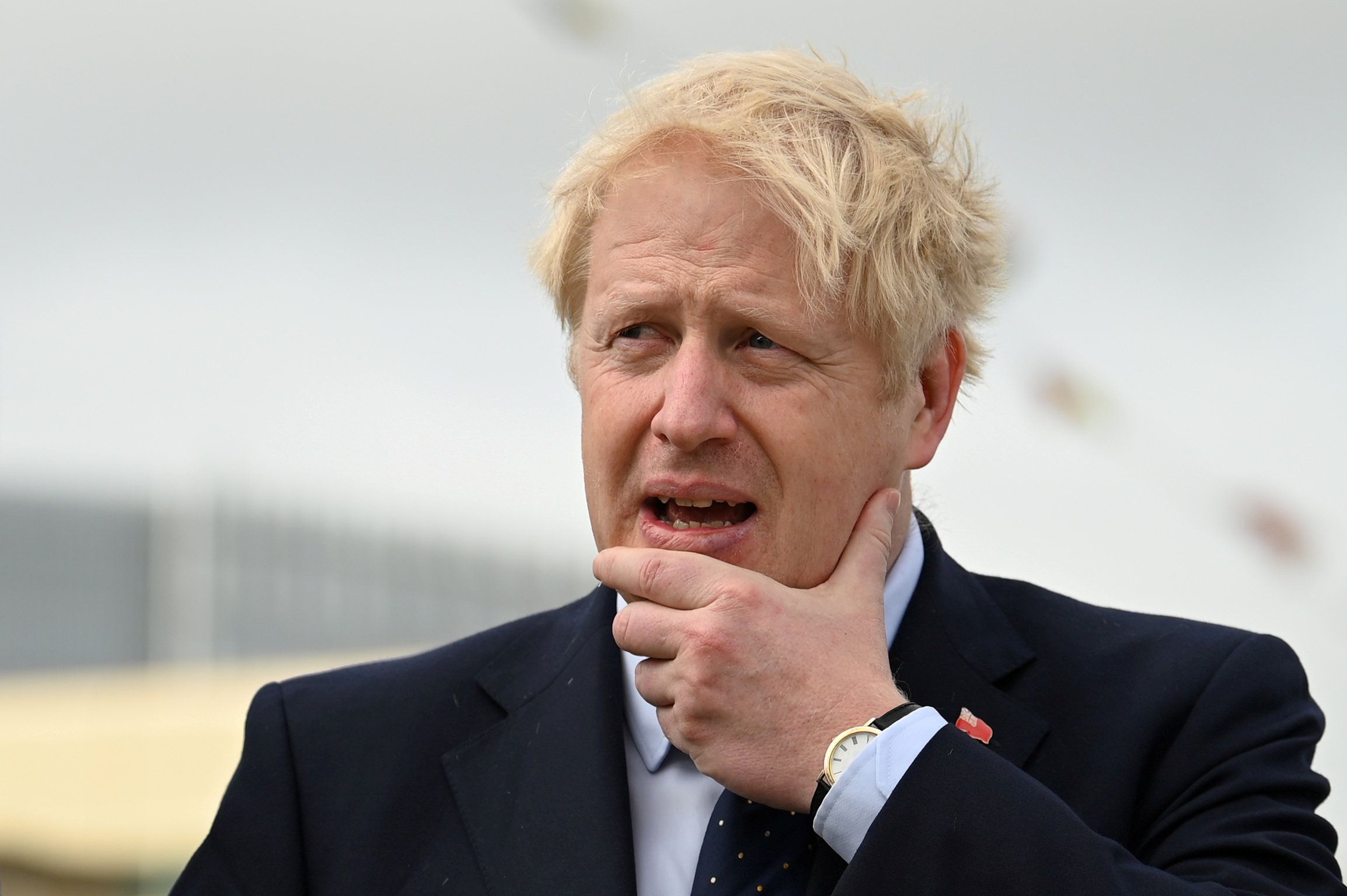What We're Watching: Johnson's political mess, carnage in Kabul, Algerian plot twist
Boris Johnson's hot mess: Analysts across the British political spectrum seem to agree on one word to describe UK Prime Minister Boris Johnson's pandemic response: chaotic. After recently saying there would not be another nationwide lockdown in England, Johnson reversed course on Saturday after the UK recorded over 1 million COVID-19 cases and neared 47,000 deaths. (Around 1 in 100 people in England were infected with COVID-19 in the week between 17 and 23 October, according to the UK's Office for National Statistics.) Public health experts say that these new measures come too late, having recommended weeks ago that the government introduce new nationwide restrictions to tackle the country's soaring caseload and surging rate of hospital admissions. While offering support for the lockdown, Labour opposition leader Keir Starmer accused the Johnson government of gross incompetence due to its inconsistent messaging. Johnson has also faced opposition from inside his own Conservative party, with some MPs saying that another lockdown will be ruinous for England's economy. (A leaked memo Friday caused Johnson to make an ad-hoc announcement about the planned lockdown, blindsiding some members of his own party.) Meanwhile, pro-Brexit warrior Nigel Farage is also capitalizing on the chaos and outrage, saying he will change his Brexit Party's name to Reform UK, switching focus to fight the government's COVID lockdown: "Building immunity" would be a more effective strategy, Farage said.
Carnage in Kabul: At least 19 people were killed — mostly students — and scores more injured when gunmen and a possible suicide bomber stormed the biggest university in Kabul, Afghanistan, on Monday, leading to an hours-long standoff with Afghan security forces. The deadly rampage coincided with an Iranian book fair on campus, which was set to be attended by Iranian publishers and dignitaries. The Taliban, long locked in a battle against the US-backed Afghan government, says it was not involved in the gruesome attack. Attention is now on Islamic State affiliates in Afghanistan who claimed responsibility for a similar attack on an education center in Kabul last month that killed 24 people. (ISIS-linked groups gained a foothold in Afghanistan in 2014, and have targeted Afghanistan's minority Shiite community in particular.) This latest bout of violence comes as representatives of the Afghan government and the Taliban are trying to iron out a peace deal in Qatar, while the US is looking to bring its troops home from Afghanistan soon after nearly two decades in the country.
Another political plot twist in Algeria: For more than 18 months, the gas-rich Mediterranean nation of Algeria has been gripped by political drama. Last year mass protests led by students succeeded in toppling long-ruling dictator Abdelaziz Bouteflika. But his successor hasn't pleased the streets, and protesters say the same corrupt cabal of military men still run the country. Over the weekend, the government held a referendum on a new constitution that it hoped would meet protesters' demands for more government accountability and economic security. But while those who voted overwhelmingly approved it, total turnout in the country of 44 million people was just 24 percent, raising big questions about the popular legitimacy of the document. One big reason for the weak showing at the polls was a boycott by the "Hirak" (the leaderless protest movement) which says that although the new constitution includes more guarantees of social and economic rights, it was drafted without sufficient input from civil society and still reserves too much power for the president. It's not clear what happens next — but if the government thought the referendum would draw a line after more than a year of unrest, it may be in for a rude surprise in the coming weeks.
